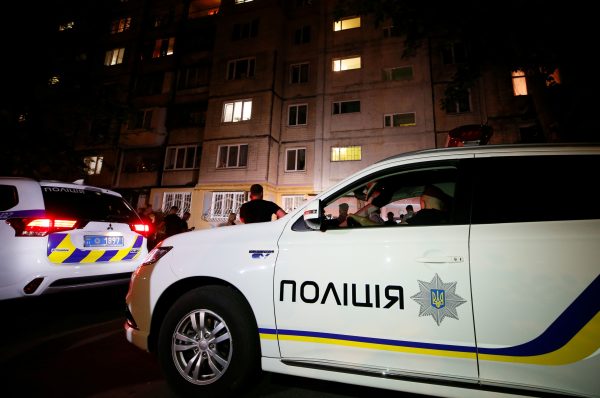
The main goal of criminal organizations is to obtain excess profits, which should somehow be legalized (laundered). Otherwise, the meaning of their activity disappears. The definition of money laundering was proposed by the Special Financial Action Task Force (GAFI) at the UN Congress in Havana in 1990. It boils down to:
— changes or transfers of property, if at the same time it is known that it arose as a result of criminal activity for the purpose of concealing its illegal origin or providing assistance to any person involved in the commission of such crimes in order to avoid the legal consequences of his actions;
— hiding or masking the true nature, source and location of property or the right to it, if it is known that such property arose as a result of criminal activity;
— acquisition or use of property, if at the time of its acquisition it is known that it arose as a result of a crime or participation in such a crime.
There are several stages in the process of money laundering. At first, profits in the form of available funds are launched into the financial system through banks or other financial institutions. In those countries where income declarations are required, the laundering process is usually carried out with the help of numerous small transactions, that is, by the so-called “shredding” of money. It also applies to the smuggling of significant funds to those countries where the requirements for declaration of income are not so strict. The second stage of money laundering is “exfoliation”. Here, funds are separated from their source in order to hide their origin and make auditing difficult. The third stage marks legalization, that is, the investment of criminally obtained profits in the legal economy, giving some appearance of their legal origin.
UN materials indicate the stages of money laundering
The first stage is the release of cash and its transfer to the accounts of fictitious persons. There are cases when the role of such persons is played by relatives of the guilty. At the same time, intermediaries must have their own bank accounts.
The second stage is the distribution of available funds. They are implemented through the purchase of bank payment documents and other securities. At this stage, a network of informants who can report on the illegal circulation of money should be created. As experience shows, distribution of funds is often carried out in currency exchange offices, casinos and nightclubs.
The third stage is “covering the traces” of the crime. It can be opening accounts in banks located far from the location of the criminals; transferring money abroad to the accounts of shell companies, or using illegal conversion centers, etc.
The fourth stage is the integration of the money supply. It is known that criminals in business operate very sophisticatedly. If the sales markets of one or another country can be sources of high profits, criminals invest significant sums of money in the relevant structures. For this, for example, joint ventures are convenient. Such firms employ their trusted persons who already legally transfer money abroad. We are primarily talking about offshore areas, which are currently considered a fairly profitable capital investment. Offshore zones attract attention for two reasons: on the one hand, there is a more favorable tax regime, and on the other, the legal system ensures confidentiality of the origin of capital.
There are many ways to launder “dirty” money. Financial institutions carrying out these operations can be depositories, exchange offices, corporations for the sale of real estate. At the same time, various methods are used: the use of several accounts, couriers who have false documents for transporting money and opening accounts; creation of front companies to cover up the operations; acquisition of securities through front companies, certificates for ownership of shares issued in the bearer’s name; transfer of funds through corporations in the form of allegedly legitimate activities, etc. The ultimate goal of these operations is the desire to return money to circulation under the guise of “clean”.
Methods of laundering “dirty” money are characterized by great sophistication. Thus, organized criminal groups: use the shortcomings of national financial systems; carry out flexible and fast operations with transfers and movements of assets across state borders; skilfully use the differences in the regimes of regulation of entrepreneurial activity in different countries; use the services of officials who violate legal and ethical norms.
The social consequences of “dirty” money laundering in a concentrated form were outlined at the Conference of Council of Europe member countries on the problems of money laundering in transition countries (Strasbourg, December 1, 1994). In particular, it leads to the following dangers:
1) unsuccessful attempts to stop money laundering create a sense of impunity for criminals. This makes crime an attractive occupation that undermines the foundations of a civilized society;
2) shortcomings in the fight against money laundering provide an opportunity for criminal organizationsto finance their further activities;
3) uncontrolled use of banking institutions by criminals damages the entire financial system, especially in developing countries;
4) the concentration of financial power in the hands of criminal organizations can ultimately undermine the economy of these countries and the foundations of democracy, since the money obtained through crime does not go to the development of production and the satisfaction of social needs, but is used to commit new crimes and enrich oligarchs.
Combating organized crime
The improvement of economic, political, social, ideological, spiritual and other relations that take place in the process of building a legal state is the factor that undermines the roots of organized crime. In the fight against this phenomenon, general social measures to improve law enforcement activities are of primary importance, which requires:
1). To complete the radical reform of the economic, social, political and other spheres of society on the basis of fair competition and democracy, to overcome the deep crisis in which Ukraine found itself during the transition from an administrative-command system of management to a civilized market economy.
2). Improve the management of state property and economic processes, strengthen control over the amount of work and consumption, eliminate the laundering of funds obtained illegally.
3). Create an effective tax system, favorable conditions for entrepreneurial activity, so that citizens have a real opportunity to work within the law.
4). Introduce a preliminary examination by banks of the financial condition of individuals and legal entities applying for loans, as well as the purpose for which these loans are obtained and the possibilities of their return.
5). Since organized crime is closely related to corruption, introduce mandatory declaration of income by all civil servants.
In addition to general preventive measures, it is necessary to strengthen special measures against organized crime. Yes, significant improvement is required by the current legislation, which largely drives the economy into the “shadow”. In connection with the fact that organized crime stems from imperfect economic relations, it is worth introducing a new scientific and educational discipline – economic criminology, as well as developing a national program for combating organized crime.
The organizational structure and activities of special units of law enforcement agencies for combating organized crime, professional training of employees, their legal and social protection, improvement of material and technical support of these units require restructuring. It is necessary to improve the strategy and tactics of operative-investigative and intelligence-analytical work, comprehensively study criminogenic situations related to the functioning of the credit-banking system. The need for centralized accounting of leaders of the criminal environment, establishment of constant control over them, including in places of execution of punishments, is ripe.
Issues of combating organized crime should be widely covered in mass media. Although they say that the “organized crime is immortal”, active opposition to it at the general social and special criminological levels of prevention with the clear cooperation of all its subjects, close international cooperation in this area will make it possible to significantly reduce all kinds of manifestations of organized crime and minimize its danger to society.
Writer Rovendo

Original content license agreement Creative Commons Attribution 4.0 license







